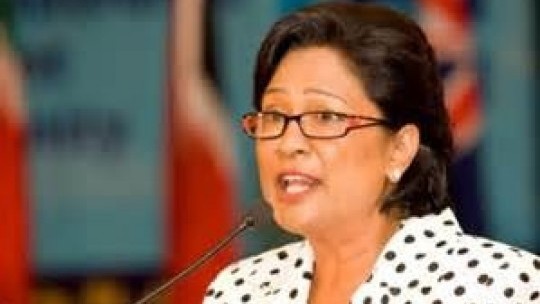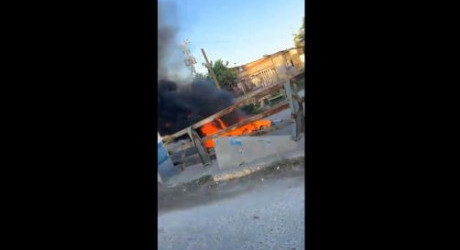Prime Minister Kamla Persad Bissessar says Trinidad and Tobago’s move to replace the London-based Privy Council with the Caribbean Court of Justice as the island’s final court “is a matter that ought to be put to a referendum in the appropriate time”.
Speaking in Parliament, Persad Bissessar said that the abolition of the Privy Council and replacement with the Trinidad-based CCJ would form part of a package of constitutional reform now being considered by her administration.
“CCJ is a matter that ought to be decided by the people. As far as the constitutional reform is concerned, the issue of a referendum is part of the package. This is a matter that ought to be put to a referendum at the appropriate time.
“Yes, in law we do not have any provision for a referendum. But when we had the Constitutional Reform Commission this was one of their recommendations. And such matters will be taken on board,” she added.
The CCJ, established in 2001 to replace the Privy Council, has both an Appellate and Original jurisdiction. While most of the Caribbean Community (CARICOM) countries are signatories to the Original jurisdiction of the Court, only Barbados, Guyana and Belize are signatories to the Appellate jurisdiction.
The CJJ also acts as an international tribunal interpreting the Revised Treaty of Chaguaramas that governs the 15-member CARICOm grouping.
In April, 2012, Prime Minister Kamla Persad Bissessar blanked a call from the second biggest partner in her coalition administration for a referendum ahead of Port of Spain joining the appellate jurisdiction of the CCJ.
In a statement issued by the Office of the Prime Minister, Prime Minister Persad Bissessar said that as regards the CCJ, “such matters are ideally suited for discussion at the level of the cabinet”.
It said that the announcement that the coalition People’s Partnership government to accept the CCJ as the country’s final appellate court in respect of criminal matters has been “hailed as a positive step in the right direction by all and sundry”.
The Prime Minister said that ‘ if however, one of our member parties differs in their view one has to acknowledge this, but it does not automatically alter the government’s position.
“It was never a formal stated policy nor agreed platform of the People’s Partnership that a referendum be held prior to a decision on the CCJ so no issue of departure arises. Indeed, our constitution and laws make no provision for such a measure which would in itself require a constitutional amendment that can facilitate the holding of a referendum”.
“One must understand that as we embark upon the kind of major positive social shift and political change which the People’s Parnership brought with it, there will be intense debate from all quarters, both within and without the government. Change does that.
“The discussions taking place across the country today is evidence of the change the country voted for and of a healthy democracy at work,” the Prime Minister said in the statement.
The leader of the Congress of the People (COP) and Legal Affairs Minister Prakash Ramadhar said the party would accept full constitutional reform, not piecemeal reforming of legislation.
“We have stated our position that referenda are required and therefore there is no automatic guarantee that the COP will support any legislation to amend the Constitution in a piecemeal manner on a matter of grave national importance,” he said.
Ramadar said a matter such as the moving of criminal appeals from the Privy Council to the CCJ “cannot be done by a few persons sitting together and deciding upon it.
“Our continued existence is about consultation and indeed, this party has gone on record to say that matters of the removal of Privy Council or the death penalty should be by referendum and therefore, we stand by what we have said,” he told reporters then.
As she answered a question on the CCJ from Opposition legislator, Paula Gopee-Scoon on Wednesday, Prime Minister Persad Bissessar repeated her account of the attempt for partial abolition which had run into problems due to a lack of consensus at the CARICOM level.









 All feeds
All feeds







